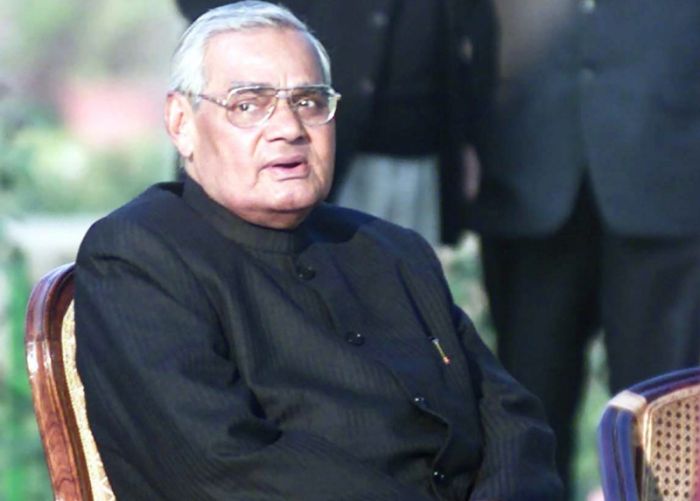By: Arshid Qalmi
The judgmental nature of society is a pervasive and deeply rooted phenomenon that influences our daily lives in ways both subtle and overt. While society is often celebrated as a nurturing collective, capable of fostering relationships and providing a sense of belonging, it also harbours a tendency to judge and categorize individuals based on a myriad of factors. This judgmental behaviour, ingrained in cultural traditions, psychological tendencies, and amplified by modern social dynamics, has profound and far reaching consequences on individuals, communities, and societies at large.
At its core, societal judgment often stems from cultural norms and traditions that dictate acceptable behaviour, roles, and values. These norms, while essential for preserving heritage and shared identity, can become oppressive and rigid over time. They enforce conformity, often at the expense of individuality and diversity. For instance, traditional gender roles may restrict women to certain societal functions while pressuring men to conform to rigid notions of masculinity. Similarly, expectations around dress, lifestyle, etc. are frequently scrutinized, creating an environment of constant judgment and surveillance.
Another root cause of judgmental behaviour is the human tendency to fear and mistrust the unfamiliar. Differences in faith, ethnicity, sexuality, or even personal preferences can invite criticism and prejudice. This is often exacerbated by ignorance or a lack of understanding, leading to stereotyping and discrimination. For example, someone practicing a different faith or embracing a non traditional lifestyle might be judged harshly without any effort to understand their perspective or experiences.
The rise of media and social media has significantly amplified the judgmental nature of society. Media outlets perpetuate stereotypes, reinforcing societal biases and shaping public opinion. Social media platforms have created an environment where judgments are not only instantaneous but also widespread and anonymous. A single post, photograph, or statement can become a target of mass criticism, often devoid of context or nuance. This digital space has transformed judgment into a public spectacle, where the mob mentality takes over, leaving little room for empathy or constructive dialogue.
The need for validation is another psychological driver of judgmental behaviour. People often judge others to feel superior or to justify their own choices and behaviours. This tendency is a reflection of underlying insecurities and a lack of self awareness. By pointing out perceived flaws in others, individuals attempt to mask their own vulnerabilities, perpetuating a cycle of criticism and negativity.
Society’s judgmental nature manifests in numerous ways. Physical appearance is one of the most common areas of scrutiny. People are often evaluated based on their body size, skin colour, clothing choices, and adherence to beauty standards propagated by media and culture. Those who do not conform to these standards are frequently marginalized or ridiculed. Moral policing is another prevalent manifestation, where individuals’ personal lives and choices are subjected to unwarranted scrutiny. Belongings, personal orientation, and even career choices are often judged harshly, particularly in conservative or traditional societies.
Professional and financial biases also play a significant role in societal judgment. Career paths and financial status often become measures of worth, with unconventional professions or modest financial means being looked down upon. Gender plays a compounding role in these judgments, with men and women often facing different standards for the same actions. A working woman may be labelled as neglectful of her family, while a man in the same role might be praised as responsible and ambitious.
Despite growing awareness, mental health remains a significant area of judgment. Individuals struggling with mental health issues are often stigmatized, labelled as “weak” or “unstable.” This stigma discourages them from seeking help and perpetuates harmful stereotypes that further isolate them. Society’s unwillingness to address mental health with empathy and understanding highlights the deep seated biases that continue to shape public attitudes.
The consequences of this judgmental culture are far reaching. For individuals, constant judgment can lead to severe mental health issues such as anxiety, depression, and low self-esteem. The pressure to conform often forces people to suppress their true selves, leading to inauthentic and unfulfilled lives. At a societal level, judgment stifles creativity and innovation. Fear of ridicule or rejection discourages individuals from pursuing unconventional ideas or paths, ultimately hindering progress.
Judgment also creates divisions within society. By fostering an “us vs. them” mentality, it exacerbates social tensions and perpetuates systemic inequalities. Marginalized groups, including minorities, women, and different individuals, face compounded discrimination, limiting their opportunities and growth. These divisions prevent societies from achieving true unity and inclusivity.
To address this pervasive issue, a fundamental shift in societal attitudes is required. Promoting empathy is a critical first step. By understanding others’ perspectives and experiences, individuals can move beyond superficial judgments and foster a culture of acceptance. Stereotypes must be actively challenged, both by individuals and through media representation. Diverse voices and stories need to be amplified to dismantle entrenched biases.
Self reflection is equally important. People must recognize that judgments often mirror their own insecurities and biases. Encouraging introspection can help individuals address these underlying issues and adopt a more constructive and empathetic approach to others. Inclusivity should be prioritized in all spaces, from workplaces and schools to public forums. Creating environments where people feel accepted for who they are can significantly reduce the culture of judgment.
While social media often amplifies judgmental behaviour, it can also be leveraged as a force for good. Campaigns and initiatives that celebrate diversity, challenge stereotypes, and promote understanding can reshape the online culture. Technology should be used to educate, connect, and inspire rather than to criticize and divide.
The judgmental nature of society, while deeply ingrained, is not an inevitable reality. By fostering empathy, challenging biases, and embracing diversity, we can move towards a more compassionate and inclusive world. Each individual has the power to contribute to this change by examining their own behaviour and attitudes and advocating for a culture of acceptance. The choice lies with us, to judge or to embrace. Choosing the latter can pave the way for a society where individuals thrive as their authentic selves, free from the constraints of judgment and prejudice. Let us work together to create a world where compassion triumphs over criticism, and understanding replaces judgment.
aqalmi303@gmail.com



